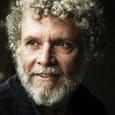This month I start a series of articles on the practice of Breathwork, beginning with the two basic aspects of the practice: Breath Awareness and Conscious Breathing. You can think of these as yin and yang aspects, active and passive practices.
Breath Awareness means simply observing the breath, watching the breath, noticing the breathing… witnessing it. This is the passive aspect. You don’t breathe in any particular way: the breaths come and go by themselves.
The Awareness we are talking about is meditative awareness. It is not thinking, not judging, not comparing, not analyzing: it is a soft open state of alertness or presence. Breath Awareness is a “mindfulness” practice, with extraordinary benefits.
As you observe your breathing moment to moment, you are looking for details: sense the breath, listen to it. How do you know you are breathing? What are the feelings and sensations that occur? Where do you notice those feelings and sensations? What muscles do you use? Where does the breath go in you? What does it touch? What moves when you breathe?
As you become more aware of the breath, you naturally become more aware of other things in your mind and body: thoughts, feelings and sensations, and emotions. You become aware of your self-talk, your physical tensions, energetic contractions, habits, patterns, urges, reactions.
Witness these things. Don’t make them important. When your mind wanders, when miscellaneous thoughts or things around you distract you, simply return your attention to the breath. This practice of awareness comes without attachment, resistance or judgment. It is pure conscious awareness. Nothing is happening to you: it is just happening. You are the witness.
The second aspect is Conscious Breathing. This is where you come in. You give the breathing a certain quality or pattern. You breathe with a certain intention. You control and direct the breath in some way. With Breath Awareness the breath is breathing you. With conscious Breathing you are breathing the breath.
There are countless conscious breathing exercises and techniques. For example there is a practice called “Square Breathing” or “Box Breathing” used by warriors, martial artists, Navy Seals and Special Forces personnel.
To do Square Breathing: inhale for a count of 4; hold for a count of 4; exhale for a count of 4; hold for a count of 4.
Another example of a Conscious Breathing technique or exercise is called “Mother’s Breath:” inhale for a count of 7; hold for a count of 1; exhale for a count of 7; hold for a count of 1.
Conscious Breathing or “breath control” could mean practicing alternate nostril breathing, or inhaling thru the nose and exhaling thru the mouth, or doing pursed lip breathing, or employing breath sounds. It could mean combining breath and movement, or combining breathing and visualization or affirmations.
We move forward in our breathwork practice by going back and forth between these two aspects: active and passive: between doing the breathing and letting the breath breathe itself.
An important part of Breathwork practice is integrating these two aspects into our daily lives. Become aware of your breathing at different times; tune into your breathing in different situations. Notice how you breathe during various interactions and activities.
Breathe consciously from time to time, for example when you are walking: perhaps in rhythm to your footsteps, or when listening to music. Breathe consciously when you are taking in a sunset, when you are listening to someone. Learn to use conscious breathing to relax yourself, to energize yourself; to prepare for things and to recover from them.
We can go thru life in a similar way: sometimes we paddle our boat, and other times we let the river take us. We sometimes take charge and we sometimes get out of the way. Sometimes we control, and sometimes we surrender. We live our life, and we let life live us.
When we practice an active conscious breathing technique, it’s a good idea to practice Meditative Awareness before and after the exercise or technique. Track the changes in your mind and body, in your energy. Keep a journal. Share your notes and experiences with other Breathworkers.
In the Breath Mastery Inner Circle Members Area, there are a number of recordings and transcripts of Guided Breath Awareness and Conscious Breathing sessions. I invite you to become a Breath Mastery Inner Circle member.
Right now, you can become a Lifetime Member for less than the cost of a single year membership! This offer will not last long, so I suggest you take advantage of the opportunity while you can!
When you join the Breath Mastery Inner Circle, you can freely access almost 40 years of breath and breathing research: articles, essays, audio/video files, seminar transcripts, workshop handouts, and even complete training manuals!
All the information is here: http://www.breathmastery.com/breathmastery-inner-circle-membership/
For more information about Breathwork, go to www.breathmastery.com. If you have any questions, send them to me at office@breathmastery.com
Don’t forget to download yourFREE copy of my book, "Shut Up And Breathe!" It is onlyfree till the end of the month, so get it while you still can! Go to: http://breathmastery.com/shutupandbreathe
PS: If you are ready to get onto the Path of Breath Mastery right now, you can enroll in the 60-Day Online Course: "21 Lessons in the Art and Science of Breathwork." Visit: http://breathmastery.com/onlinecourse
Next month, we will explore the two core Breath work techniques or exercises used to access personal power and to trigger transformation.
Until then, good luck in your practice, and many blessings on your path.
Dan Brulé has studied and practiced breathwork with more than 80,000 people in over 40 countries since 1976. His travel and teaching schedule is posted at www.breathmastery.com.

Post new comment
Please Register or Login to post new comment.